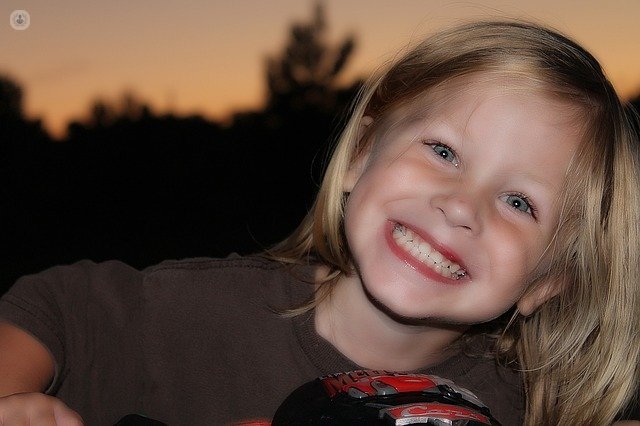Cancer in children and adolescents, can it be detected early?
Written by:During pediatric cancer is a rare disease that may initially present with the same signs and symptoms as other common disease processes. The aim of this article is to help parents to know those early signs and symptoms that should alert to the possibility of cancer. Early detection by the pediatrician usually improve prognosis.
 Leukemia. It usually presents with a history of a few weeks of evolution. It should be suspected in the occurrence of one or more of the following signs and symptoms that are not justified for other reasons: paleness, tiredness, irritability, unexplained fever, generalized lymphadenopathy, bruising, petechiae, persistent bone and joint pain, recurrent respiratory infections and / or hepatosplenomegaly. Pay special attention to children with Down syndrome.
Leukemia. It usually presents with a history of a few weeks of evolution. It should be suspected in the occurrence of one or more of the following signs and symptoms that are not justified for other reasons: paleness, tiredness, irritability, unexplained fever, generalized lymphadenopathy, bruising, petechiae, persistent bone and joint pain, recurrent respiratory infections and / or hepatosplenomegaly. Pay special attention to children with Down syndrome.
Lymphoma. It usually presents with a history of months evolution. Suspect in the absence of signs of local infection, before the appearance of lymphadenopathy (disease of the lymph nodes) not painful and location: cervical, supraclavicular and / or axillary. In addition to the consistency that is usually hard and enlarged gradually.
CNS tumor. It usually presents with a history of 2-4 weeks duration. It should be suspected in the occurrence of one or more of the following signs and symptoms: bulging fontanelle, increased head circumference, loss of developmental milestones (in children under 2 years), persistent headache, vomiting waking up in the night or are morning, first seizure, impaired vision, motor or sensory disturbance, impaired school performance and / or unexplained changes in behavior. Pay special attention to children with Neurofibromatosis.
Nephroblastoma (Wilms tumor). It usually presents as a lump or persistent abdominal distension, progressive and painless. Less often the first manifestation may be a gross hematuria.
Neuroblastoma. It should be suspected in the occurrence of one or more of the following signs and symptoms that are not justified for other reasons: persistent bone pain, back pain, pallor, fatigue, weakness in legs, irritability, unexplained fever, respiratory infections repetition, generalized lymphadenopathy, bruising, abdominal bloating and / or urinary retention.
Bone tumor (osteosarcoma / Ewing). It should be suspected if they develop persistent pain and / or swelling in the extremities, especially around the knee. Less often it occurs with a sore back or a limp Unexplained more than 4 weeks duration.
Soft tissue tumors (sarcomas). Suspect before the appearance of a tumor not justified in any location, with any of the following characteristics: larger than two centimeters in diameter, fast or hard consistency and progressive growth, adhered to deep planes and / or regional lymph nodes.
Retinoblastoma. It usually occurs in children under two years and should be suspected in the display of a white pupil reflex (leukocoria) in a photograph or physical examination. Less often it presents with new onset strabismus or a change in visual acuity. Pay special attention to the children of parents with a history of retinoblastoma and children affected twins.


